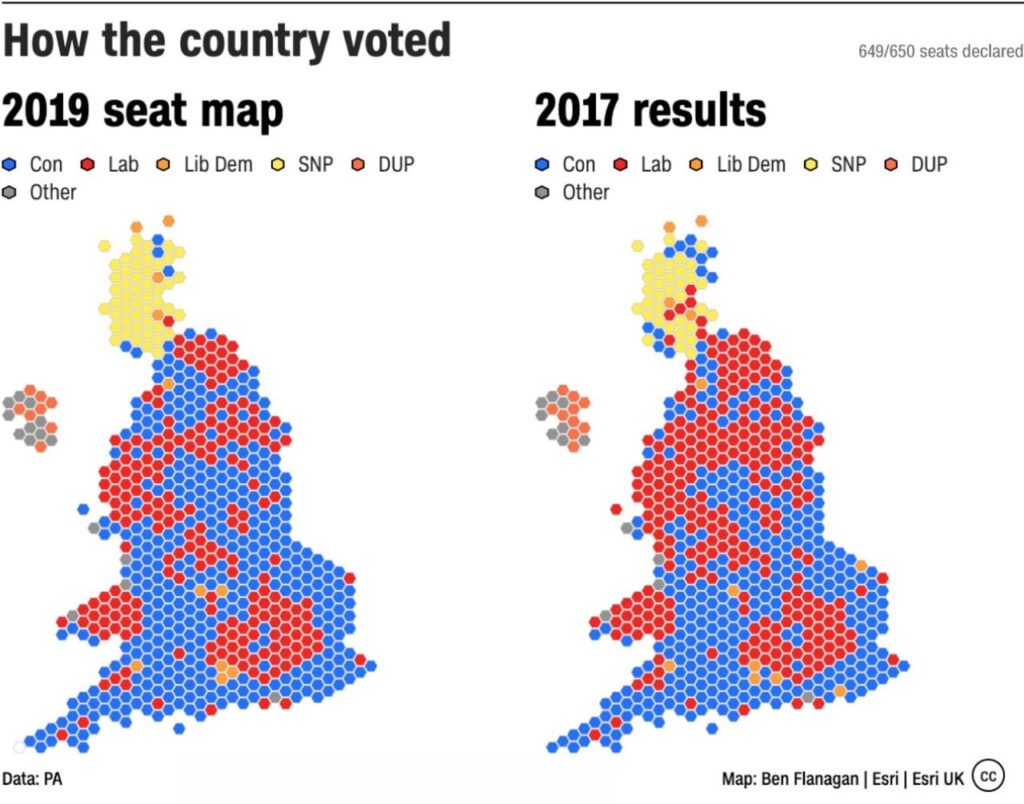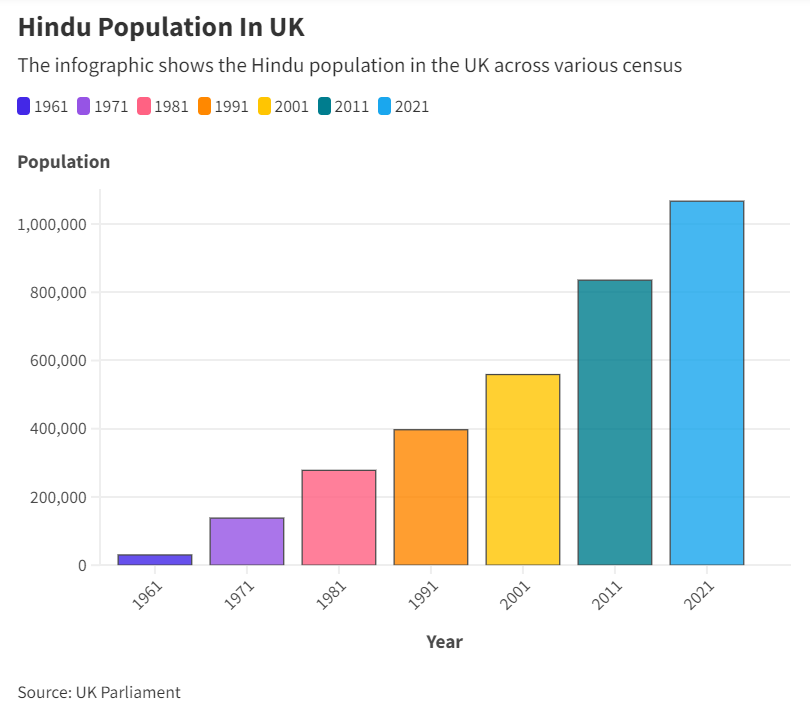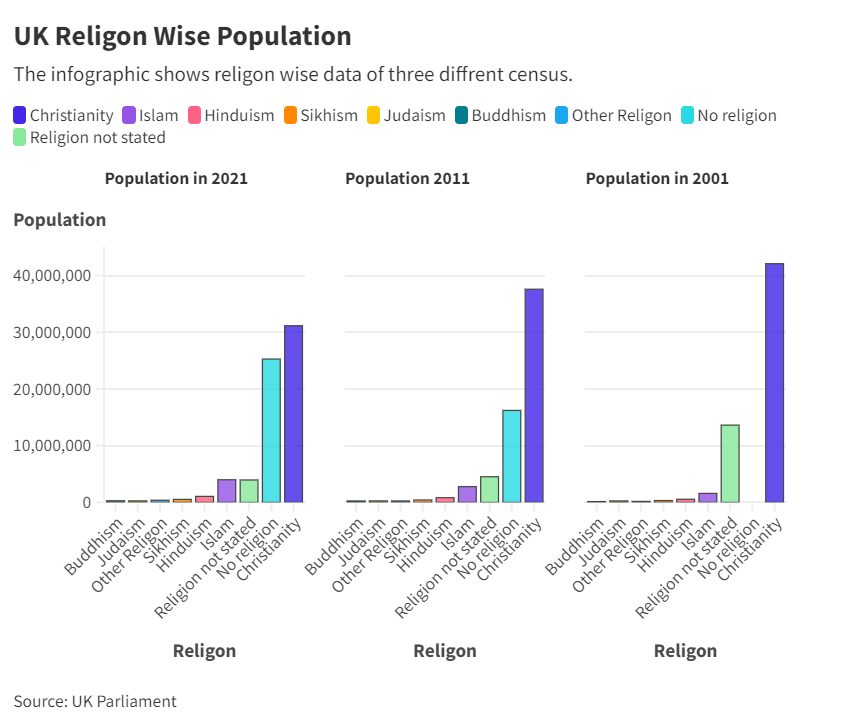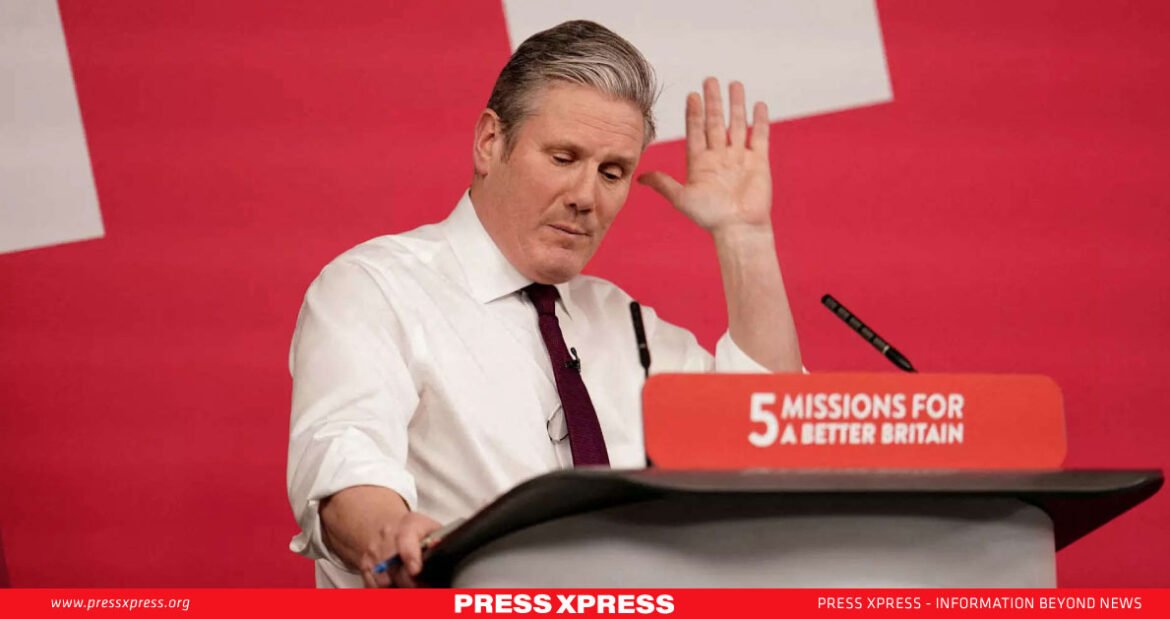Key Highlights:
- The Labor Party seeks to establish a strategic alliance with Modi’s government
- The Labor Party lost the British Indian vote in 2019 due to their stance on the Kashmir resolution
- To re-engage with the community, Labor has launched new initiatives, including hiring community outreach volunteers
To regain the support of the Indian community, the UK’s opposition Labor Party has vowed to eradicate anti-India sentiments within its ranks and build a robust strategic partnership with Prime Minister Narendra Modi’s government. The party’s previous stance on international intervention in Kashmir under former leader Jeremy Corbyn is believed to have cost it the British Indian vote in the 2019 elections.
You Can Also Read: AS UK FACES ELECTION, WHAT MATTERS MOST TO VOTERS?
Additionally, concerns have been raised about some Labor Councilors’ pro-Khalistan views. At a ‘Political Hustings’ event for the UK’s South Asian community in London on Friday, June 28th, Anneliese Dodds, Labor Party chair and shadow secretary of state for women and equalities assured that the party, under Keir Starmer’s leadership, has removed members with extremist views.
On the Conservative side, Felicity Buchan, Minister at the Department for Levelling Up, Housing and Communities, emphasized the party’s pro-India stance and highlighted having a Prime Minister of Indian heritage in Rishi Sunak. The UK’s 1.8 million strong Indian diaspora is expected to play a crucial role in determining the outcome of the July 4 general election, with all parties and independent candidates vying for their votes.
Jeremy Corbyn’s Controversial Comment
Social media buzzed with reactions from both Indian and Indian-origin netizens to a tweet by Jeremy Corbyn on August 11 last year. He bluntly stated that the situation in Kashmir was ‘deeply disturbing’, calling for India to curb ‘human rights abuses’ and ensure that ‘UN resolutions were implemented’.
In October 2019, the Labor Party passed an emergency motion on Kashmir, urging Corbyn to seek international observers for the region and demand the right of self-determination for its people. This move drew criticism from Indian diaspora representatives, who described it as ‘ill-conceived’ and ‘misinformed’.
Days after the Labor Party’s resolution, Jeremy Corbyn advocated for United Nations intervention in Kashmir following a call with Pakistan Prime Minister Imran Khan. Khan had called for UN involvement to resolve the Kashmir issue, warning of a potential ‘bloodbath and demanding the ‘inhuman curfew’ be lifted.
The Labor Party’s resolution urged Corbyn or another representative to attend the United Nations Human Rights Council (UNHRC) to demand the restoration of basic human rights in Kashmir, including freedom of speech, lifting curfews, and allowing humanitarian aid and international observers into the region.
It also called for Corbyn to meet with the high commissioners of both India and Pakistan to mediate and restore peace to prevent a potential nuclear conflict. However, India slammed the Labor Party’s resolution, terming it an attempt at ‘pandering to vote-bank interests’.
How British Indians Swung 2019’s Vote for Labor?

Indian voters overwhelmingly supported the Conservatives in 2019 election. Labor’s stance on Kashmir unified Indian voters like never before. Corbyn faced criticism from his own MP, Virendra Sharma, who retained Ealing Southall for Labor despite his 2017 majority shrinking by 6,006 votes to 16,084.
Speaking about Labor’s worst performance since the 1930s, Sharma labeled the result a disaster for Labor and a call for change. British Indians rejected the notion of Britain assuming a neo-colonial role in dictating other nations’ affairs.
In Leicester East, longtime Labor MP Keith Vaz stepped down after 32 years, replaced by Claudia Webbe, a Corbyn supporter who chaired the session at the Labor Party conference where an emergency resolution on Kashmir was adopted.
Despite Vaz’s formidable 22,428 majority in 2017, Tory candidate Bhupen Dave garnered 19,071 votes, significantly narrowing Webbe’s majority to 6,019. In Harrow East, Conservative MP Bob Blackman, who narrowly won in 2017 with 1,757 votes, saw his majority grow to 8,170, largely due to Indian support.
Can’t Afford to Lose British-Indian Votes Again!

There are 1,066,894 British Hindus in England and Wales alone, making up 1.6% of the total population, and they wield considerable electoral influence. The Hindu community’s political presence in the UK has grown significantly, with the 2017 general election seeing 8 Hindu MPs elected to the British Parliament—an all-time high.
British Indians, like the rest of the country, are primarily concerned with the economy and healthcare. Despite disappointment with Boris Johnson’s government, many are critical of Labor policies, often perceiving the party as too influenced by socialism.
Younger British Indians (ages 18 to 29) are the strongest supporters of Labor, preferring it over the Conservatives by a margin of 54% to 21%. However, among those aged 50 and above, Labor’s advantage narrows to just two points (37% vs. 35%).
British Indians’ political views are also polarized along religious lines. 4 in 10 Hindus feel that the Conservative party is ‘closer’ to British Indians, while similar proportions of Sikhs and Muslims favor Labor. Hence, any strained relationship with India could significantly impact Labor’s support.
Will New Strategies Help Labor Woo Indian Voters?

From organizing trips to India to hiring community volunteers, the UK’s main opposition Labor Party has announced a series of measures to win back the support of the British Indian community, which has been on the wane in recent years. Support sharply declined, with a UK-based think-tank revealing that in 2019, only 30% voted for the Keir Starmer-led party, a stark contrast to 61% in 2010.
To re-engage with the community, the party has launched new initiatives, including hiring community outreach volunteers, revitalizing the Labor Friends of India group, and organizing a trip to India for two of its senior shadow ministers. The group has recruited two volunteers to brief Labor parliamentary candidates on issues important to India.
Also, last November, Sir Keir Starmer joined top members of the British Indian community.
The Labor Party is leaving no stone unturned in its quest to reconnect with the British Indian community ahead of the crucial upcoming elections. With a renewed commitment to addressing past grievances and building stronger ties with India, under Keir Starmer’s leadership, the party aims to reclaim the trust it lost. As the election date looms, all eyes are on how these strategic moves will resonate with the strong Indian diaspora, whose votes could tip the scales in this fiercely contested political sphere.


